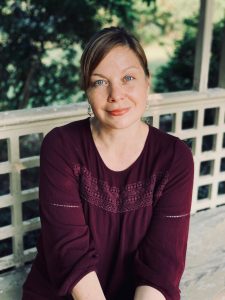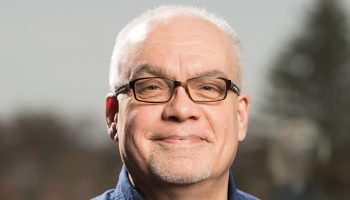SARAH VEST – STAFF WRITER

“Click” goes the shutter of a camera, capturing a moment in time before it passes by. Just like a camera captures moments in time, so does the memory of Sonja Livingston, Week One’s prose writer-in-residence who will be giving a Brown Bag at 12:15 p.m. Friday, July 2 on the CHQ Assembly Virtual Porch. Livingston has written two nonfiction books of memoirs, but she originally began her writing career as a poet.
“I still love poetry. I think the intensity of it matches memory really well and sort of the mystery of (memory),” said Livingston, an associate professor of creative writing at Virginia Commonwealth University. “A lot of times we’ll suddenly think of something, and it’s so intense and it sticks with us — and we can’t figure out what it’s about and that lends itself to poetic prose or a poem.”
It is at the intersection of poetry, prose and memory that Livingston came up with her “snapshot” writing technique for her first book, Ghostbread. The book is a memoir of growing up in Western New York and of childhood poverty.
“The topic was so overwhelming that I didn’t exactly know how to go about it,” Livingston said. “I was also pretty young, and I didn’t know how to really write a memoir. What worked for me was to handle each memory or image as it came to me individually.”
In order to handle each memory individually, Livingston uses the “snapshot” style of writing: borrowing from her days in poetry to write short, but intense, nonfiction pieces to get started on longer nonfiction pieces.
It is the “snapshot” style of writing that is the basis for her Brown Bag, “The Literary Snapshot: The Wisdom of Starting Small.” Livingston thinks that “snapshots” are particularly good for young writers, or people who are trying writing for the first time.
“A lot of times, like me, (writers) are overwhelmed and they don’t know where to begin, but they may have a memory that keeps coming to them,” she said. “I think it’s just about giving them permission to explore that singular image and then go on to the next thing and then the next and then see how they connect.”
Livingston hopes that people will get a lot out of her Brown Bag lecture, but the primary thing is that the best way to begin “is simply to begin.” This approach lets people know that there is no right or wrong way to go about telling your personal story.
“Our stories are really important, even if they seem really small,” Livingston said. “Small moments can tie into much larger questions.”




